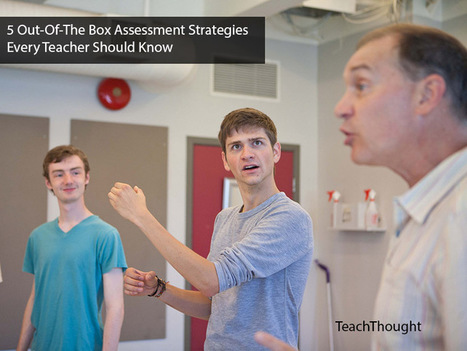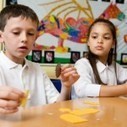Get Started for FREE
Sign up with Facebook Sign up with X
I don't have a Facebook or a X account
 Your new post is loading... Your new post is loading...
 Your new post is loading... Your new post is loading...

Christopher Resetar's curator insight,
February 13, 2014 12:00 PM
Like other comments on this scoop, I really like this article, especially items #1 and #2. I really like those options because they are unconventional options that I still think would provide an appropriate level of challenge for the students as well as provide an alternative form of just a simple pencil and paper exam. I think option #1 is more feasible for elementary school because it would allow students to work on skills that are more age appropriate like consolidation of information and looking for quality source material.
Ruby Day's curator insight,
February 14, 2014 3:45 PM
Sounds like some great ideas to stimulate critical thinking 
Audrey's curator insight,
March 5, 2014 6:51 PM
All 5 assessment methods involves students leading the learning. Asking the students questions based on their reading of the topic helps their analytical skills and allows them to be in charge of their learning. |
|











A resource of ideas that teachers have found implemented in their classrooms. With useful links provided.